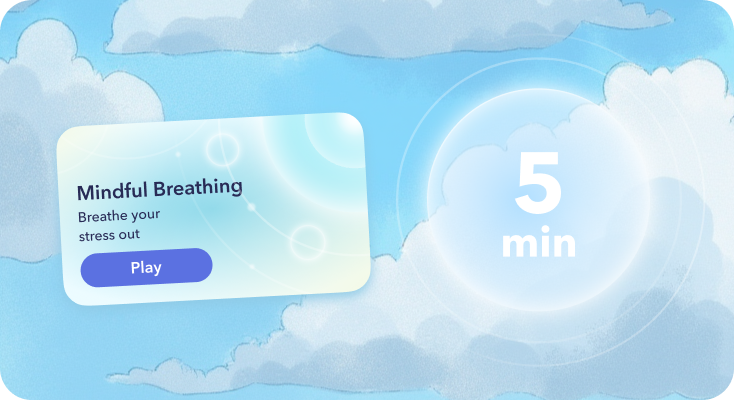If you have ever felt discomfort when someone gets too close to someone you care about, you may have experienced jealousy. But what exactly is jealousy? Is it rooted in fear, insecurity, love, or all of the above? And more importantly, is it something we should fight against or try to understand?
Let’s find out where jealousy stems from, what it feels like, and how to develop healthier ways to cope with it.
Worried that your reactions might be unintentionally hurting your relationship? Take the “Am I Toxic?” Test to better understand your patterns and start building healthier communication habits.
Understanding Jealousy
Jealousy is a complex emotion that usually appears when a person feels threatened by the idea of losing someone or something they care about, according to a study on jealousy and relationship closeness. It often involves a triangle: a person, someone they value, and a perceived threat.
Jealousy is a natural emotion and response to perceived threats in relationships. However, when jealousy leads to behaviors that exert control, manipulation and abuse, or constant mistrust, it can become toxic. The key is how it’s understood and managed.
Emotionally, jealousy can show up as a mix of fear, insecurity, anger, and sadness. It can trigger intrusive thoughts like “Why am I such a failure?” These jealous thoughts can make you get stuck in self-blame and turn into a shame spiral.
Physically, jealousy can show up in ways similar to stress or anxiety. Your heart might race, and you could experience muscle tension, headaches, or trouble sleeping, according to research on the differential effects of jealousy.
These symptoms are your body’s way of signaling a threat, even if you experience irrational jealousy. It’s important to learn how to work on yourself and notice and name the emotion when you sense jealousy. This can help you pause, process, and control your emotional response, rather than react out of dysregulated panic or pain.
What Triggers Jealousy?
Jealousy can arise in all types of interpersonal relationships. Some examples include:
- Your partner starts spending more time with a new friend or coworker, and you begin to fear emotional infidelity. In this case, you may feel emotional insecurity because their emotional or physical intimacy is being redirected toward another person. Even small changes in your partner’s behavior, attention, or routine can provoke your reactive jealousy.
- Your long-time best friend gets close to someone new and starts sharing inside jokes or making plans without you. Jealousy arises when you feel replaced or excluded from your valued relationship, which you’ve invested in without your control.
- A sibling gets more praise or attention from parents during family gatherings. It’s especially common for children of emotionally immature parents who struggle to validate each child’s unique needs and achievements. These parents might play favorites or compare siblings openly. This imbalance in love and support can make one sibling feel like a black sheep of the family. In such a situation, sibling rivalry doesn’t always go away in adulthood and can cause jealousy.
- Checking an ex’s social media profile “just to see how they’re doing” can quickly spiral into feelings of jealousy, especially if they seem happy, successful, or have moved on with someone new. Even if the relationship is over, seeing their life without you can trigger jealousy, a sense of loss, or comparison.
Expert Insight
Jealousy is a normal human emotion that everyone experiences. It is not something that needs to be shamed or even judged. In fact, having more compassion and understanding for your jealousy can help you better work with it. This lets you feel more empowered in how you react when you notice jealousy arise.
Nicole Arzt
Mental health professional
Jealousy vs. Envy: What’s the Difference?
Although the terms jealousy and envy are sometimes used interchangeably, they have different meanings. Jealousy usually involves a third person or situation. It’s that tense feeling when you fear someone might take what’s yours, like a partner, close friend, or romantic interest. Envy involves wanting something someone else has, like their success, possessions, or even their personality.
To sum up, feelings of envy and jealousy may overlap. The difference is that envy occurs when you lack something you desire, while jealousy is about protecting something you already have.
Understanding the difference and how you respond to them can reveal a lot about your emotional awareness. Take the Emotional Intelligence Test and gain deeper insight into your emotional patterns.
4 Signs of Romantic Jealousy in Relationships
According to research on romantic jealousy, it occurs when we imagine that someone can give our partner something that they do not receive from us. It is associated with a feeling of loss of a partner or their love, loyalty, or attention.
Based on studies on obsessional jealousy, some signs of jealous behaviors in romantic relationships can be:
1. Constant Suspicion of a Partner
Romantic jealousy leads to the assumption that a partner is hiding something or engaging in sexual infidelity, even without real evidence. A person who feels jealous in romantic relationships may look for inconsistencies in their partner’s words or suspect them of lying without explanation. This constant suspicion can show up as checking their phone, asking repeated questions about their whereabouts, or feeling anxious when their partner interacts with others.
Eventually, these behaviors can harm trust and create emotional distance in the relationship. Even if the partner hasn’t done anything wrong, they may begin to feel suffocated or unfairly accused. What starts as a fear of losing someone can end in self-sabotaging relationships.
Do you ever feel jealous of your partner?
2. Arguing Over Small Things
If one partner tries to constantly control the other, this often increases the number of conflicts and leads to tension in the relationship. Frequent accusations and checks undermine trust and can eventually destroy a relationship.
Small issues like a late reply to a text or an innocent interaction with someone else can quickly escalate into arguments when jealousy is present. These conflicts aren’t really about the minor incident itself, but rather the deeper fear of losing the relationship or inner question, “What’s wrong with me? Why am I not enough for them anymore?” It becomes a pattern of reacting to perceived threats instead of real problems.
3. Control and Boundary Violation
In some cases, jealousy can cause someone to try to control their partner’s actions, decisions, or social life. This might include asking them not to spend time with certain people, setting rigid boundaries, or even guilt-tripping them into changing their behavior.
A person who feel jealous may also negatively evaluate their partner communication with other people, try to devalue them and criticize their behavior. While the reason is a decrease in self-confidence, these signs of emotional abuse can feel manipulative for the other person.
4. Constant Comparison to Other People
Jealousy can fuel unhealthy comparisons, whether it’s to an ex, a coworker, or even strangers online. You may start to feel like you’re not attractive enough, smart enough, or successful enough to hold your partner’s attention and affection. Constantly comparing yourself to others can make you feel worse about yourself and lead to a cycle of jealousy, low self-esteem, and depression, according to research on social comparisons.
5 Root Causes of Jealousy
Understanding the roots of jealous feelings can offer valuable insight into your emotional needs, attachment style, and even the way you give and receive love. Jealousy can be complex and arise from a combination of various factors, including:
1. Low self-esteem
People with low self-esteem and self-worth may feel less attractive or worthy of their partner’s attention. According to research on the relationship between self-esteem, jealousy and anger, a person with low self-esteem may doubt their role or place in a current relationship, have fear of losing their partner and, therefore, feel jealousy.
2. Attachment styles
Attachment style formed during early relationships with caregivers can influence how a person experiences jealousy in their own relationships in adulthood. People with avoidant attachment may suppress jealousy but still have trust issues. Those who wonder how to fix anxious attachment style, on the other hand, may constantly fear being abandoned, making them more prone to jealousy.
3. Fear of abandonment
People with abandonment trauma may worry that someone they care about will leave them. Typically, the fear of abandonment comes from childhood trauma or repeated losses and can make a person interpret neutral situations as threats. For example, a text delay or a partner’s praise for someone else might trigger panic, insecurity, and an urge to “protect” what feels at risk.
4. Anxiety
Anxiety can make it harder to deal with uncertainty. An anxious mind might fixate on worst-case scenarios or make you wonder how to get out of your head. Moreover, if they’ve experienced relationship betrayal, jealousy may be fueled by rumination and the need for control or reassurance.

5. Childhood trauma
Early life experiences can shape how we experience jealousy later in life. In homes with dysfunctional family roles where a person’s emotional needs weren’t fully met, jealousy can develop as a way of coping with feelings of worthlessness, inadequacy, or emotional neglect. Recognizing how your childhood shaped your mental health is a first step toward healing and building healthy communication.
Coping with Jealous Feelings
On the one hand, the feeling of jealousy can be destructive both to relationships and to a person’s personality. On the other hand, sometimes jealousy serves as a signal that the boundaries in a relationship have been violated. With self-awareness and intention, it’s possible to understand and manage jealousy in healthier ways:
1. Acknowledge the Emotion
Break your jealousy down into its components: fear, anxiety, resentment, envy… Which feelings are more common? Ask yourself self-reflection questions like, “What am I really feeling?” Recognizing which emotion you’re experiencing may be helpful in managing your reactions.
This is where Breeze journaling might come in handy. It offers guided prompts and a calm space to reflect, so you’re not just reacting, but truly learning how to feel your feelings and deal with them. Write down what happens to you when you feel jealous. After four or five entries, analyze what fear pushes you to feelings of jealousy.

2. Be Honest about Your Hurt Feelings
If your jealousy involves someone else, especially a partner or close friend, aim to talk to them calmly and honestly. You may share some of your previous experiences with your partner to explain to them why your fear arises. Focus on how you feel rather than blaming them for your emotions: “I felt insecure when…”
At the same time, jealousy is not always a sign of insecurity. In some cases, it is an adequate reaction to a violation of boundaries in relationships.
For example, a woman may feel uncomfortable when her partner forms close friendships with other women. If this happens, it can trigger a wave of jealousy and anxiety. These feelings are tied to a deep emotional need for safety and connection. In this scenario, jealousy could signify the breach of certain boundaries or agreements. It makes sense to listen to the feeling of jealousy and find out where and what your boundaries have been violated.
Think about whether these boundaries were previously defined. When partners do not discuss the boundaries of what is acceptable in a couple, misunderstandings and unmet expectations arise instead. If those unspoken rules are broken by accident, it can lead to jealousy, disappointment, or anger. That is why it is so important to discuss boundaries early on and come to an agreement.
Expert Insight
Because jealousy is an emotion, and emotions can’t inherently be controlled, jealousy is always justified. However, that doesn’t give you or your partner free access to act out with their jealousy. Relationships require mutual respect. This entails ongoing, open communication and checking in with boundaries regularly.
Nicole Arzt
Mental health professional
3. Improve Your Self-Esteem
The more secure and confident you feel within yourself, the less threatened you’ll feel by others. If you wonder how to love yourself, invest time in activities that make you feel good, build your skills, and remind you of your value. It may be through hobbies, work achievements, sport, communication with people you love, therapy, or setting personal goals to be the best version of yourself.
4. Set Boundaries with Triggers
If you find yourself obsessively checking social media or comparing yourself to others, take a step back. Unfollow or mute accounts that cause insecurity. Create boundaries that protect your peace, especially if certain habits only feed the jealous thoughts.
5. Practice Mindfulness and Self-Regulation
Learning how to ground yourself, to pause, breathe, and self-soothe in those moments when you feel jealousy can help you respond more thoughtfully. Journaling, meditation, or talking to a trusted friend or therapist can improve your mental health.
One helpful tool is the Breeze app, which offers a mindful breathing exercise. Even just a few minutes of mindful breathing can lower your stress response and bring clarity to your emotions.

What to Do If My Partner Is Jealous of Me?
What to do if you have a jealous partner? If they are constantly watching you, questioning your actions, or trying to control who you see and where you go, try the following:
1. Learn your partner’s point of view
Try to understand what causes such feelings in him. Do not argue, do not blame him. The task now is to understand your partner. In turn, you can tell him about your feelings about the situation. Use I-statements such as “I get angry when …”, “I feel hurt when …”.
2. Take a moment to reflect: Does your partner have a reason to be jealous?
Try to be empathetic and honest with yourself. For example, you went for a coffee with a colleague and do not consider this a reason for jealousy and overthinking. But for your partner, this may be painful and disturbing. Ask your partner what is important to them now and what they would like from you.
3. Remember your personal boundaries
Reflect on where you’re willing to compromise and where your boundaries are non-negotiable. You are not obligated to share your passwords, report your every move, or cut off contact with others. Unless you truly choose to.
While openness in a relationship can be healthy, it should come from mutual trust, not pressure. If your partner demands this level of control, uses threats, or tries to make you feel guilty for setting boundaries, it’s a clear sign to pause and reflect. You can also seek the help of a mental health professional to help you process your feelings, set healthy boundaries, and create coping strategies that protect your emotional well-being.
Frequently asked questions
1. How Can You Talk About Jealousy in a Healthy Way?
Speak honestly about your feelings without blaming the other person. Try to use “I” statements, stay calm, and focus on building understanding, not control.
2. When Does Jealousy Become a Bigger Problem?
Jealousy becomes a problem when it turns into acting out in constant fear, control, or emotional distress. These behaviors are often rooted in deeper issues like insecurity or fear of abandonment.
3. Can Jealousy Be a Sign of Love?
While mild jealousy may show that you care, constant or extreme jealousy is more about fear and control than love. Healthy relationships are built on trust, not possessiveness.
Sources
- Attridge M. Jealousy and relationship closeness: exploring the good (Reactive) and bad (Suspicious) sides of romantic jealousy. February 2013
- Ritchie LL, van Anders SM. There’s jealousy…and then there’s jealousy: differential effects of jealousy on testosterone. February 2015
- Tom R. Kupfer, Morgan J. Sidari, Brendan P. Zietsch, Patrick Jern, Joshua M. Tybur, Laura W. Wesseldijk. Why are some people more jealous than others? Genetic and environmental factors. January 2022
- Sheikhmoonesi F. Obsessional jealousy: A narrative literature review. May 2017
- Samra A, Warburton WA, Collins AM. Social comparisons: A potential mechanism linking problematic social media use with depression. June 2022
- Ayesha Farooq, Shazia Irfan. Relationship between Self-Esteem, Jealousy and Anger in Emerging Adults. December 2020
Disclaimer
This article is for general informative and self-discovery purposes only. It should not replace expert guidance from professionals.
Any action you take in response to the information in this article, whether directly or indirectly, is solely your responsibility and is done at your own risk. Breeze content team and its mental health experts disclaim any liability, loss, or risk, personal, professional, or otherwise, which may result from the use and/or application of any content.
Always consult your doctor or other certified health practitioner with any medical questions or concerns
Breeze articles exclusively cite trusted sources, such as academic research institutions and medical associations, including research and studies from PubMed, ResearchGate, or similar databases. Examine our subject-matter editors and editorial process to see how we verify facts and maintain the accuracy, reliability, and trustworthiness of our material.
Was this article helpful?






